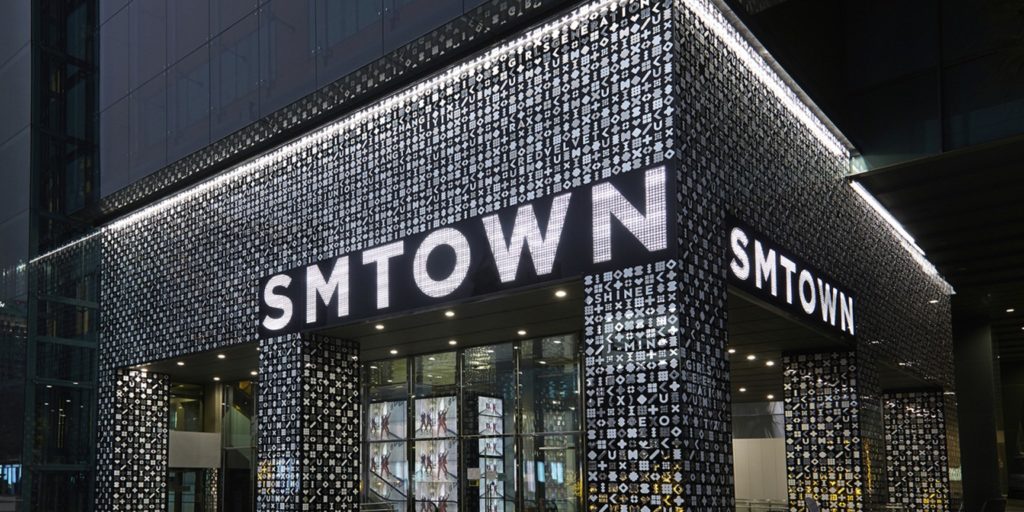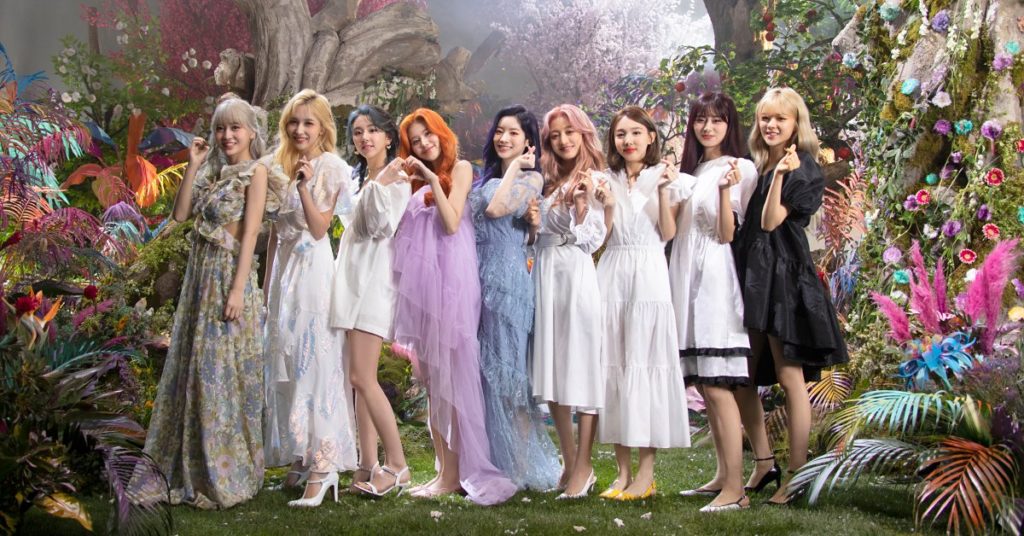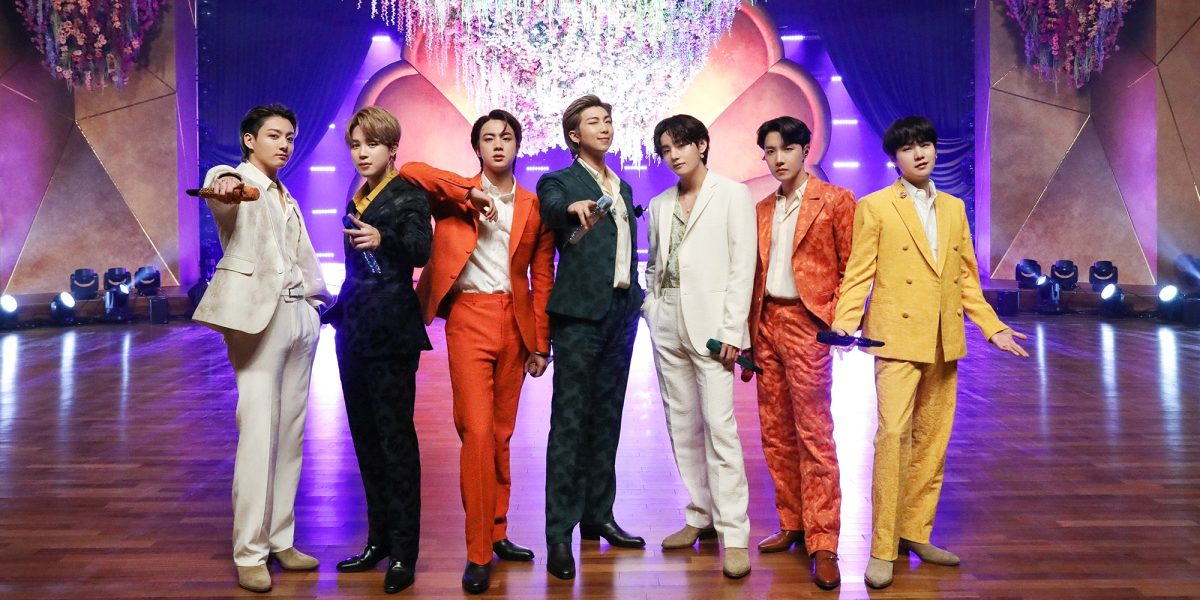So you mean to tell me…there’s more to K-Pop than learning all the names of BTS’ members?
My first exposure to K-Pop dates back to sophomore year of high school. My friends and I were sitting in pre-AP chemistry and instead of learning the periodic table; we were fangirling over the music video for EXO’s “Call Me Baby.” I am now a soon-to-be college graduate, and that song still slaps. Ever since then, I’ve been casually aware of K-Pop, dipping my toes in every now and then.
That is, until quarantine started and I found myself bored on YouTube watching videos titled: “Cute Min Yoongi Moments,” and “Ranking main rappers from girl groups.” I was a goner.
In my conversion to this cute, fun but also explosive and seductive music industry, I’ve noticed many interesting things about how it works. Here is my list of the most interesting things I’ve discovered about K-Pop.
1. The Industry
Starting with the most obvious; the K-pop industry is a cutthroat well-oiled machine producing star after star and hit after hit. The three biggest companies in K-Pop are JYP Entertainment, YG Entertainment and SM Entertainment. HYBE Entertainment (formally known as Big Hit Entertainment), who manage BTS and Seventeen, is not commonly considered among the Big Three of K-Pop companies, but they have certainly made a name for themselves.

The K-Pop industry is not for the faint-hearted. Artists train anywhere from one year to a decade, learning how to sing, dance and perform. As trainees they are constantly fighting to prove they’ve got what it takes, and the chances of becoming an idol are 1 in 1,000. Once you become an idol, it’s non-stop work. You’re performing difficult songs and choreographers on multiple music shows; promoting new music, going on variety shows, doing lives on social media, sticking to strict rules and keeping up appearances everywhere you go.
Now of course working in any industry is tough, but K-Pop takes it to another level, proving why K-Pop idols are another breed of entertainers.
2. Comebacks
In Western music, artists come out with new albums, they do a few performances at award shows or on late night shows, post about their new album on Instagram and that’s about it. In K-Pop when artists come out with new music, it’s an event, and that event is called a comeback.
Comebacks include: teasers for new music videos, several performances at music charts shows, concept photos for that comeback and several extras (behind the scenes, dance practices, variety show appearances.) In K-Pop one does not simply drop an album and then leave. Comebacks are planned down to the T. Companies put a lot of money into them, and idols put in a lot of time and effort making sure each one is better than the last.
3. Concepts
There is a certain concept being portrayed whenever idols release new music. The most popular concepts are: cute concepts, girl/boy crush concepts and dark concepts. They are essentially themes, and the music, performances and costumes are tailored to that theme.

TWICE, from JYPE, is known for their cute and elegant concepts. BLACKPINK, from YGE, is known for popularizing the girl crush concept and it is considered to be a large reason for their success. BTS came up as a boy crush concept group before evolving into their current style. Red Velvet, a girl quintet from SME, are often called “concept queens” expertly switching between their cute red concepts and their dark velvet concepts.
The concepts of K-Pop go to show the intense thought and artistry that goes into their music.
4. K-Pop more like International-Pop
K-Pop means Korean pop, but did you know that you don’t have to be of Korean descent to be a K-Pop idol. Over the years K-Pop has been expanding across Asia, and to facilitate this expansion, companies have been signing idols from all over the world.
Some of the most famous include; Lisa (BLACKPINK) from Thailand, Tzuyu and Momo (TWICE) from Japan, BamBam (GOT7) from Thailand and Jackson Wang (GOT7) from Hong Kong.
Now there are some issues with foreign idols receiving racist comments from K-Pop neitzens (a term referring to those who bully idols). There are debates over if K-Pop is solely for artists of East Asian descent, and at the moment it seems that is the case. But it is fascinating to see K-Pop grow beyond the borders of its home country, truly showcasing its global impact
5. What is a maknae?
Here are just a few last minute things that I love about K-Pop.
Maknae refers to the youngest of the group, while Hyung (for men) and Unnie (for women) refer to the elders of the group. It’s wholesome to witness the bond between all the members and to see aspects of their culture through the relationships.
Focus cams are great for when you’ve discovered your bias (your favorite). Essentially they’re just the footage from a group’s performance but focused on one member only. Don’t ask me how many SUGA or V focus cams I’ve watched, I couldn’t tell you if I tried.
Is it just me, or does anyone else love the robot voice K-Pop YouTubers use on their videos? There’s just something about the slight sarcasm in British Siri’s voice that’s hilarious. Also K-Pop stans? Very messy, there is nothing they love more than an unpopular opinion video on idols or the industry as a whole.
K-Pop is a vast entertainment business with all kinds of ins and outs, and it’s slowly taking over the world – rightfully so. However, there are still those who dismiss K-Pop. They think it’s all a bunch of cutesy music with no depth. They talk down on male idols for wearing makeup and jewelry. They put racist expectations on them to speak English.
K-Pop is an intricate and impactful music industry that deserves more Western recognition. It’s more than just those “seven Asian boys who sang with Halsey once.” It’s an industry full of beautiful and talented people pursuing their passion.
Featured image BTS at the 2021 Grammys courtesy of HYBE Entertainment
































